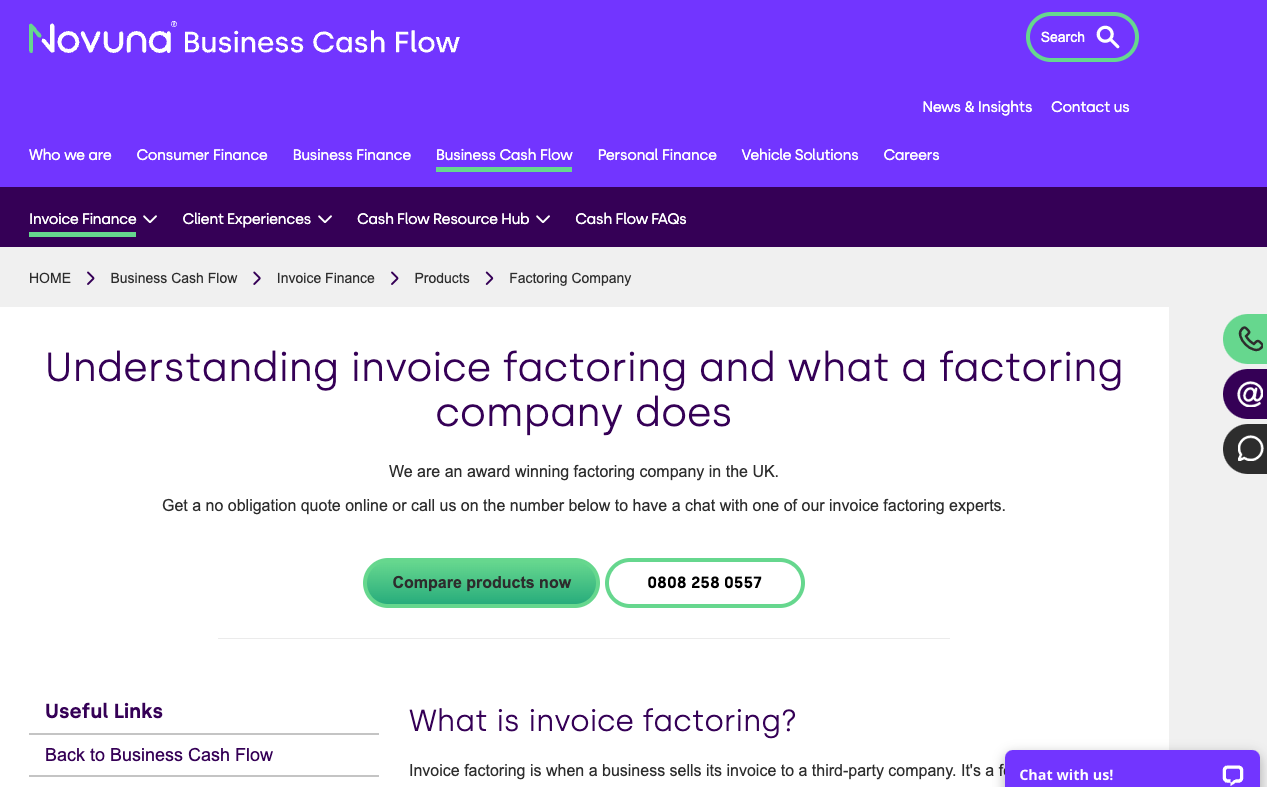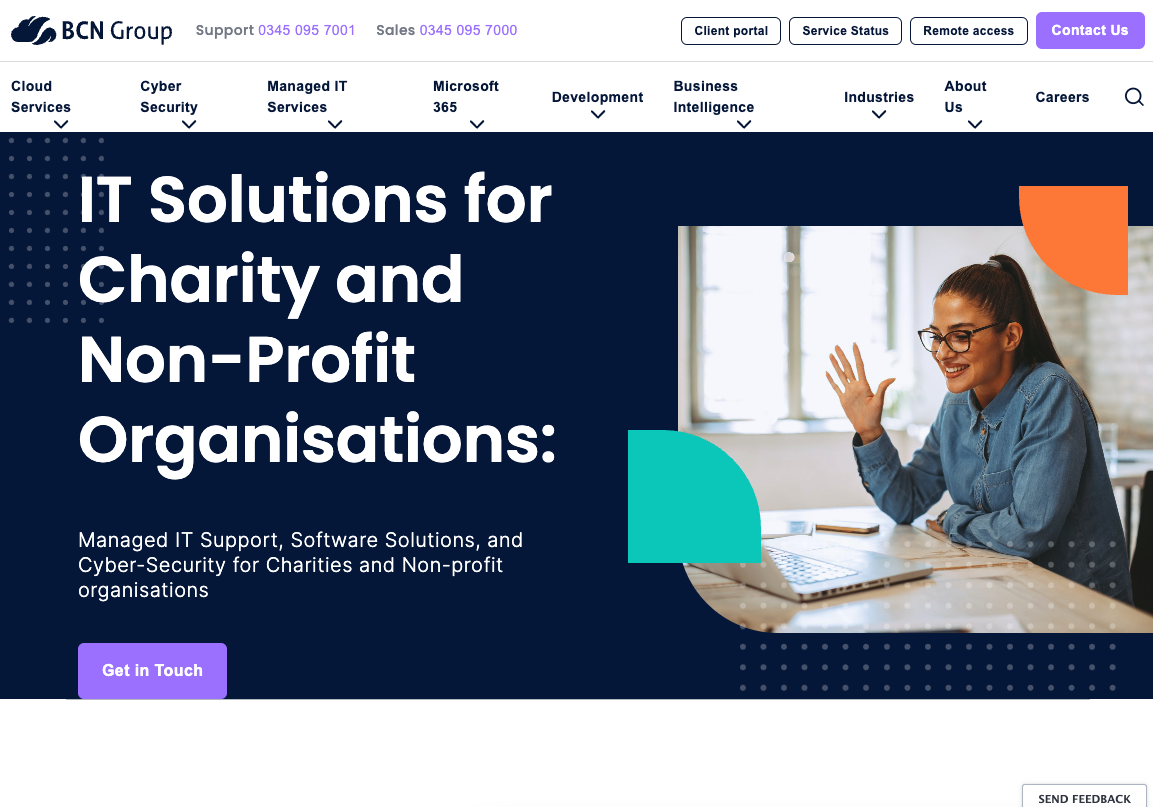How to Create Compelling Content for B2B Brands
While there’s always been a focus on B2C marketing content that’s catered to consumers (business-to-consumer), there are also many leads and sources of income that can be obtained via a solid B2B (business-to-business) content strategy as well. However, unlike some other forms of content marketing, a business-to-business content plan needs to accomplish several things at once in order to generate interest, build trust, and draw people deeper into the sales funnel.
But how can a business achieve this effectively? And why is B2B marketing so different from a standard B2C content plan? In this guide, you’ll develop a deeper understanding of what motivates a purchase in B2B marketing, why it’s such an important part of developing better business relationships, and how it can be applied to make the ultimate content plan to achieve your specific goals.
How is B2B Content Different from B2C Content?
Understanding how B2B content differs from B2C content is the first step towards creating the best possible B2B content strategy. Generally speaking, there are predominantly 3 main differences between the two.
A) Emotional Decisions vs. Long-Term Trust
B2C content will usually aim for a fast and emotional connection with a consumer. While this is a powerful content marketing method, it’s predominantly an emotional purchase based on impulse, meaning that while there’s a connection between a brand and the feelings of a consumer, it’s not usually based on a long-term plan to cultivate a strong relationship.
However, B2B content usually requires a long-term purchase decision that involves contracts, multiple parties, and higher stakes. In other words, acting on impulse doesn’t usually come into it. Instead, content needs to be able to build rapport and trust between a brand and its customers.
B) B2B Content Needs Logic and Data
The majority of B2C customers won’t have to take the future into account when they buy a product or service. This means that a B2C content plan can potentially be less formal in terms of tone and message. After all, there are usually very few downsides to an emotional B2C transaction, depending on the product or service in question.
On the other side of the coin, B2B buyers expect to be reassured and guided carefully through the process. Their trust needs to be earned through logical content that discusses their ROI, the savings they’ll make, or how beneficial a product or service may be in generating revenue, in addition to data that backs these claims up.

C) Increasing User Confidence with Authoritative Content
With B2B content, the data and logic used above need to be fed to your target audience through a confident, reassuring, and authoritative tone of voice. All content should be of value to them, and be focused on the ultimate goals of increasing their confidence and developing trust. If this is done well, your business will not only be considered a thought leader in your respective field but also be seen as more dependable and safe for cautious investors.
What are the Benefits of a Good B2B Content Plan?
With B2B content, there’s an opportunity to use modern marketing tools and platforms like blog posts, social media feeds, and white papers to build up long-term trust and, ultimately, more conversions. Here are some of the other benefits of solid B2B content.
a) Better Leads: As long as your B2B content is optimised and focused on the relevant keywords, you’ll be able to appear as the ultimate solution to their industry-specific needs. The combination of ranking higher on search engines and having an authoritative tone of voice can bring in more substantial leads.
b) Powerful Branding Potential: B2B usually involves people who are already familiar with the industry you’re specialising in. If you can put together a detailed, impactful, or educational piece of content that offers a unique perspective on an issue, you’re already crafting long-term trust and setting your brand apart from others as a thought leader.
c) Empowered Sales and Business Potential: If you can cultivate enough relevant content that continues to develop a stronger connection between others and your business, you’ll have the blueprint for salespeople to take the initiative and use it to guide a potential buyer from initial query to long-term loyal customer.
How to Create Compelling B2B Content
Regardless of size and scope, any business that’s determined to create compelling B2B content will need to consider how it can drive leads, deliver significant value and ROI and finally how it can work cohesively as part of a larger marketing plan. Here are some tips to begin creating content that achieves this well.
a) Trial Different Content Formats
B2B content creators should trial different content formats including video, imagery or even interactive options. This can not only improve engagement but it can also drive higher conversions if done correctly. An excellent example of doing so is this accounting software landing page from Sage Intacct which has a video testimonial at the bottom from a real customer who you can actually see using the software product.

Using infographics, talking heads, video testimonials and other elements to capture attention can help to humanise your brand while hitting your crucial selling points. Not only will using different formats present your company as a large and cutting-edge operation, but you’ll be able to reuse the content in multiple formats to reach more people. For instance, within this diverse approach, exploring Vocal Video alternatives becomes essential for personalizing your videos and crafting polished, publish-ready testimonials. This provides a unique and effective way to further connect with your audience.
b) Resonate With Your Target Audience
If you’ve done the work beforehand and nailed your target buyer personas, you’ll be able to personalise and present your content like it has been custom-created to solve their problems and offer innovative solutions. This is doable regardless of the format you’re communicating your content through or the platform you’re on. Ideally, that buyer persona is broad enough to resonate with people within your industry, but not so narrow that you’ve eliminated people who may be interested in what you offer.

c) Timing is Everything
When there’s money at stake, it’s only natural for a potential website visitor to proceed with caution and look over your services, standards, and products carefully. For this reason, B2B content needs to quickly establish trust, authority, and authenticity. Are you expecting an impulsive decision based on the content of your web pages? Absolutely not.
However, you can collect emails and continue to develop that relationship by choosing the right combination of content and timing. Keep that line of communication open, and leave breadcrumbs across social media, emails, and other platforms to remind them about your unique perspective, solutions to their industry needs, and brand.
d) Make The Stories You Tell Matter
Having an authoritative and confident tone of voice doesn’t mean creating robotic content that lacks humanity. The world of B2B marketing is rife with content that’s overly stuffed with lofty sentences, industry-specific buzzwords, and desperate attempts to appear more intelligent than anyone else.
Doing this only serves to push your target audience away and keep them at a distance. Instead, focus on the fundamentals of any good relationship - stay relevant, truthful, clear, and consistent. If you can tackle a commonly known subject or experience in your industry, add a unique perspective or solution to it, and keep your audience on your level, you’ll be making content that’s conversion-friendly and has the human touch.
Final Thoughts
In the end, there’s no ‘paint-by-numbers’ approach to quality B2B content that converts. And like anything worth having, obtaining long-term business relationships is a marathon, not a sprint. But by creating and promoting content that serves a purpose and has an authoritative voice, you’ll gain more traffic and greater brand awareness.
In time, that momentum will transition from curious reader to confirmed customer. And as long as your business keeps an open mind and embraces new formats along the way, you and your target audience will develop a natural business relationship that’s mutually beneficial.
Once that relationship has been established, you’ll discover new avenues of content by understanding what areas of your industry matter most to people, and how to highlight those matters in your content. Eventually, if you can continue to craft compelling copy across your platforms, you’ll gain more customers, conversions, and long-term commitments from them as well.






